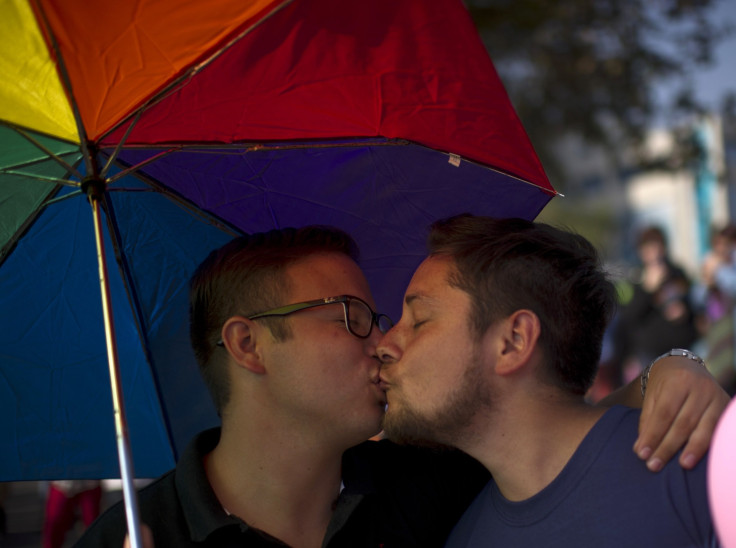LGBT Rights In Chile: Civil Union Law Recognizing Same-Sex Couples Set To Take Effect

Chile began advertising this week a new civil union law aimed at increasing rights for gay couples in the country. The government started a campaign Tuesday called "One Law for All Families" ahead of Agreement of Civil Union legislation that takes effect Thursday, Agence France-Presse reported. It was considered a sign of incremental progress in a conservative country.
The Agreement of Civil Union law, which was approved by lawmakers this past January after years of development, will afford same-sex, heterosexual and unmarried couples the same rights as people in traditional wedlock. They'll now be able to own property together, get inheritances and make health care decisions for each other. The law also gives children's parents' spouses custody priority should something happen, the Huffington Post reported.
"As Chile has changed, and for the better... this was unthinkable a few years ago," spokesman Marcelo Diaz told AFP.
About 1,600 couples have signed up to be recognized under the new law, but up to 2 million people were set to take advantage, according to CNN. Government authorities were also taking precautions to allow applications and unions to continue despite an ongoing civil servant strike for higher salaries, Andina reported.
Some lesbian, gay, bisexual and transgender rights advocates celebrated the legislation for setting a progressive precedent. Chile, which the World Factbook lists as 67 percent Roman Catholic, only legalized divorce in 2004. A Pew Research Center study from earlier this year found that 46 percent of Chile residents supported gay marriage, but 42 percent opposed it. Elsewhere in Latin America, Argentina, Brazil, Portugal and Uruguay let homosexual residents legally wed.
The European Union delegate to Chile, Ruth Bajada, told Agencia EFE she was happy to work with a country that fought discrimination. "A law that confers rights on individuals who opt for a relationship, regardless of sexual orientation, is another step in creating a culture of respect for people in the world," she added.
© Copyright IBTimes 2024. All rights reserved.






















